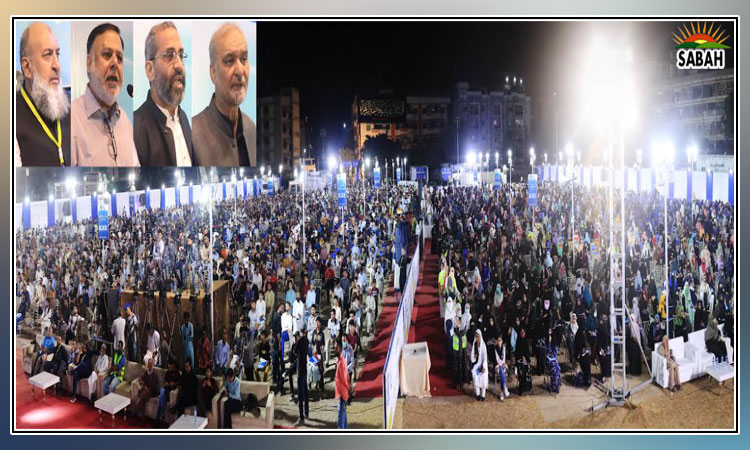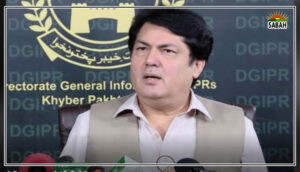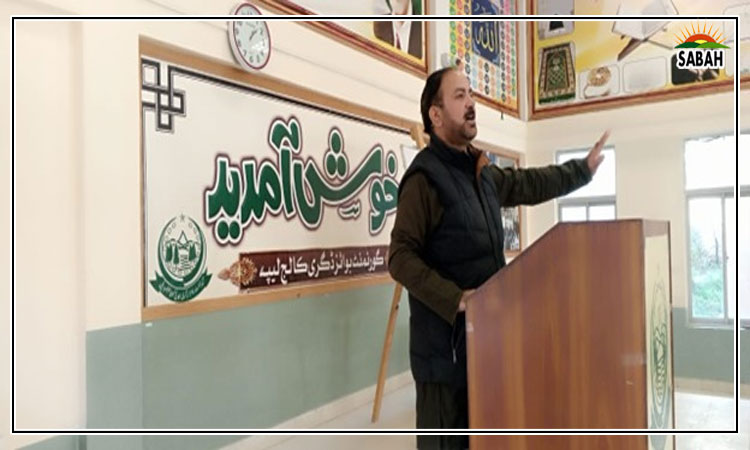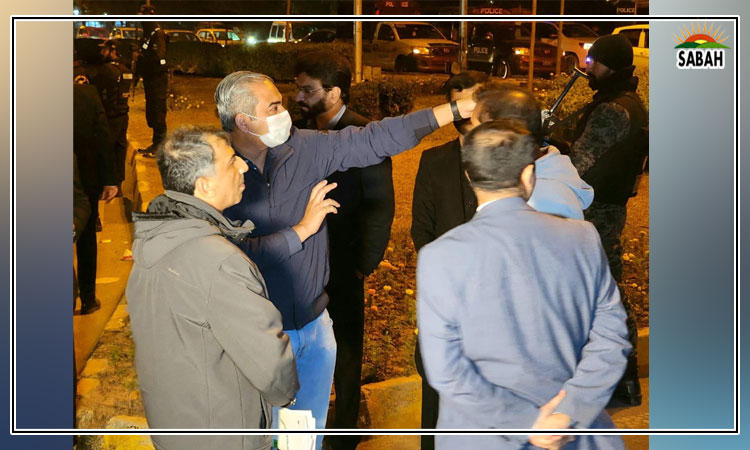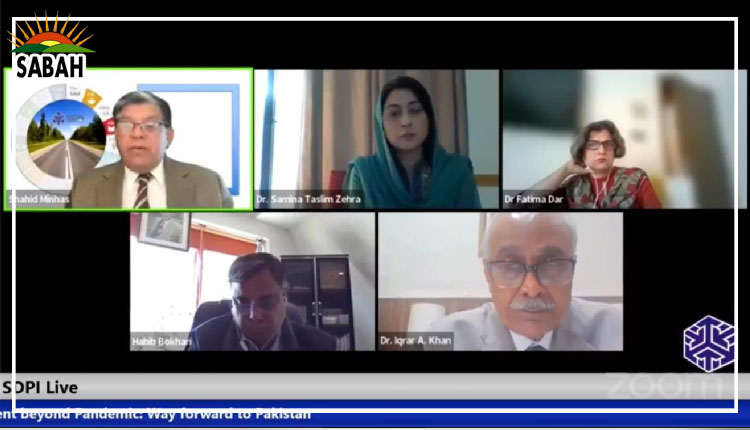Strengthening institution key to accelerate sustainable development, say speakers at SDPI webinar
ISLAMABAD, Mar 10 (SABAH): To accelerate sustainable development in the country, we need to revamp our governance and improve the delivery systems at every level. Strengthening institutions has become especially imperative after the pandemic which has provided several crucial lessons to learn for a sustainable development.
The speakers said this while speaking at a webinar on ‘Accelerating Sustainable Development beyond Pandemic: Way forward for Pakistan’ organized by the Sustainable Development Policy Institute (SDPI).
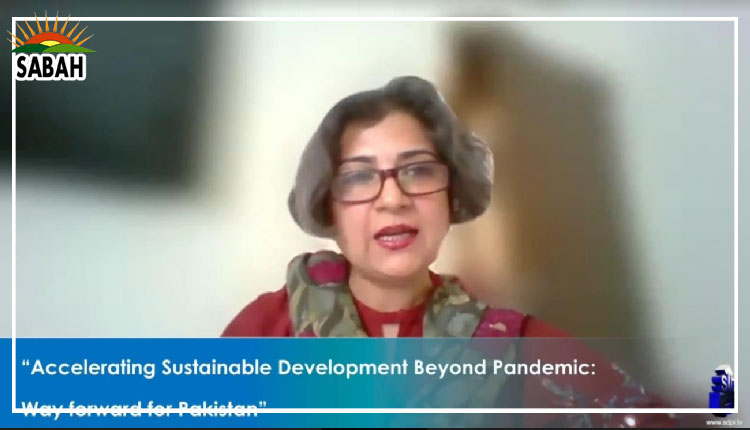
Dr. Habib Bokhari, Vice Chancellor, University of Kohsar, Murree, was of view that Pakistan is facing grave problems stemming from population growth whereas there are complex issues in our environment further intensifying these issues. He said that the pandemic has affected our labour classes the most who were already under economic stress. Highlighting the importance of institution building.
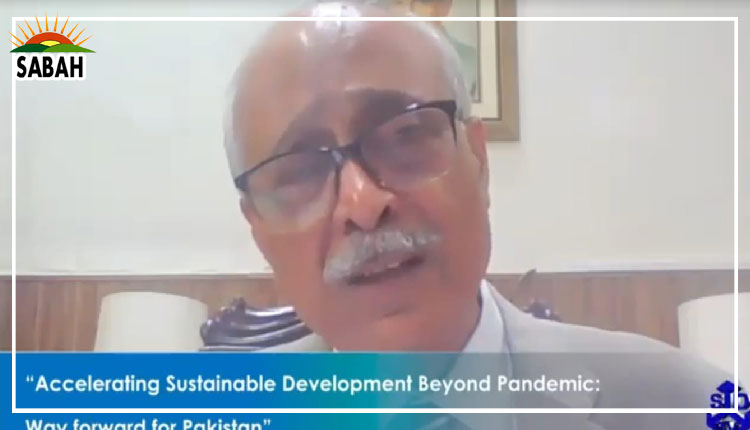
Dr. Samina Tasneem Zahra, National Project Manager Reforms, and Innovation in Governance, UNDP said that the UNDP focuses on institutional development to empower and strengthen institutions and help them device indigenous solutions to governance challenges, but these interventions are only catalysts and require a local will to proceed or take benefit of the proposed initiatives. She said that strong institutional mechanisms are a key to progress; NCOC is one successful example of institutional arrangements for national incentives. A strong governance framework is a necessity of our time.
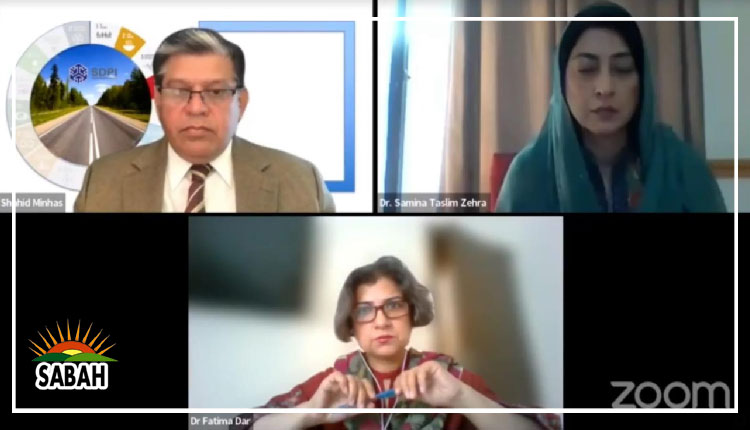
Shehzad Ali Khan, Vice Chancellor, Health Services Academy said that reforms to integrate grassroots level systems in larger framework are necessary for sustainable development. During Covid, we have worked with districts directly which integrated local administration with the larger framework. This model can be adopted for education and health sectors as well. Sustainability is achieved when you let go of project-based approach, sustainable development needs a programmatic approach than a project-based approach.
Prof. Dr. Iqrar A. Khan, Vice Chancellor, University of Agriculture said that 11 out of the 17 SDGs are connected with agriculture or food security. According to global standards, we have already touched our limit in terms of population that can be fed with 50 million acres of land Pakistan currently has in cultivation. We can increase our cultivated land but we need more efficient water usage mechanisms; we have to include technology in our processes. Market governance is one significant element that needs to be addressed along with climate adaptation.
Dr. Fatima Dar; CEO/ Managing partner, Oak Consulting, said that the Covid has brought about a ‘Generational Catastrophe’ in terms of learning, in the next 5-6 years the gap of learning of the past 2 years will be evident. We require compensatory learning to overcome the loss of knowledge in the switch we had to make during Covid. Bringing innovation in the curriculum is the need of the time as the world is transforming quickly; we are producing graduates, but they are not skilled enough to fit in the global market.


